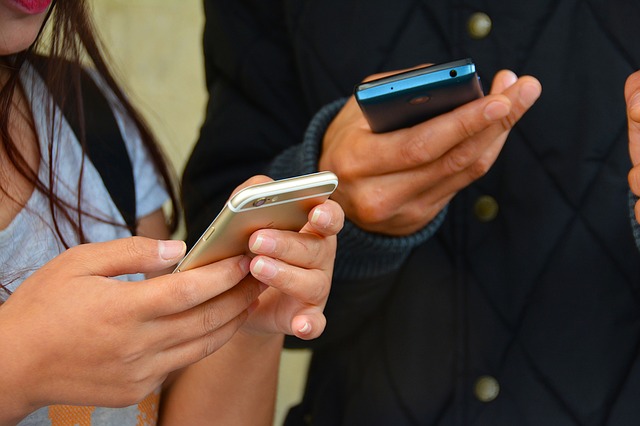Is your cell phone making you depressed? It might be, depending on how you use it.
 Is your cell phone making you depressed?
Is your cell phone making you depressed?
It might be, depending on how you use it. Your daily handheld digital companion may look innocent wrapped up in its sparkly phone case, but studies regarding the effects of regular cell phone usage (and overuse) suggest that many of us would be better off with a little less Snapchat and a little more sleep.
According to 2014 study conducted by Baylor University, female college students spend an average of 10 hours a day on their cell phones, with male students following close behind with an average of almost 8 hours daily.
A 2012 study at the University of Gothenburg found that being “constantly accessible” via cellphone can negatively affect your mental health – the “heavy cell phone use” ubiquitous on college campuses worldwide can be associated with stress, sleep problems, and depressive symptoms. In her article Cell Phones and College Students, Dr. Deborah Cohan discusses the concept of the “tethered self”. Feeling constantly connected, or “tethered” via cell phone, negatively impacts our ability to enjoy solitude and/or intimacy. According to a 2013 Kent State study on cell phone usage for college students, frequent cell phone users show lower GPAs, higher levels of anxiety, and lower levels of life satisfaction than their peers who used their phones less often.
This information begs the question; how can we moderate our cell phone usage without feeling disconnected? Short of trashing our cell phone, how can we realistically cut down on overuse?
Cell Phone Self-Care
- Be present. Do something with your hands that doesn’t let you hold your phone. Paint. Draw. Play cards with your grandma. Go for a hike. Take a spin class.
- Your phone might interfere with your circadian rhythm (sleep/wake cycle). Try reading a book before bed instead. Selfies can wait.
- Cut down slowly. Any progress counts. Are you checking your phone every 3 minutes? Try to put it away for 10 minutes. Experience and recognize your anxiety – feel it. With practice, it will become more tolerable.
- Erase the apps. The easier it is for you to access Facebook or Instagram, the more time you will spend checking up on your friend’s posts. Ax the apps – your battery life will
thank you.
- Try Cognitive Behavioral Therapy. CBT can help you modify behaviors you’d like to stop/lessen. At the Adelphi Student Counseling Center, we can offer treatment or refer you to community resources specializing in this type of treatment.
Technology is a part of life, and often, it is useful and convenient (Grubhub, anyone?). However, like most things in life, we have to take the good with the bad. Simply being aware of how your cell phone usage can impact your mental health is a good way to start taking better care of yourself today.
References:
Baylor University. (2014, August 28). Cellphone addiction harming academic performance is ‘an increasingly realistic possibility‘. ScienceDaily. Retrieved May 24, 2017.
Cohan, D. J. (2016, April 30). Cell Phones and College Students. Psychology Today. Retrieved May 23, 2017.
Hucker, S. J. (2004). Disorders of impulse control. In W. O’Donohue & E. Levensky (Eds.), Forensic psychology. New York, NY: Academic Press.
Kent State University. (2013, December 6). Frequent cell phone use linked to anxiety, lower grade, reduced happiness in students. ScienceDaily. Retrieved May 23, 2017.
University of Gothenburg. (2012, June 11). Intensive mobile phone use affects young people’s sleep. ScienceDaily. Retrieved May 23, 2017.
Volpi, D. (2012, August 2). Heavy Technology Use Linked to Fatigue, Stress and Depression in Young Adults. In Huffington Post. Retrieved May 23, 2012.
For further information, please contact:
Student Counseling Center
Nexus Building, Room 132
p – 516.877.3646
e – scc@adelphi.edu